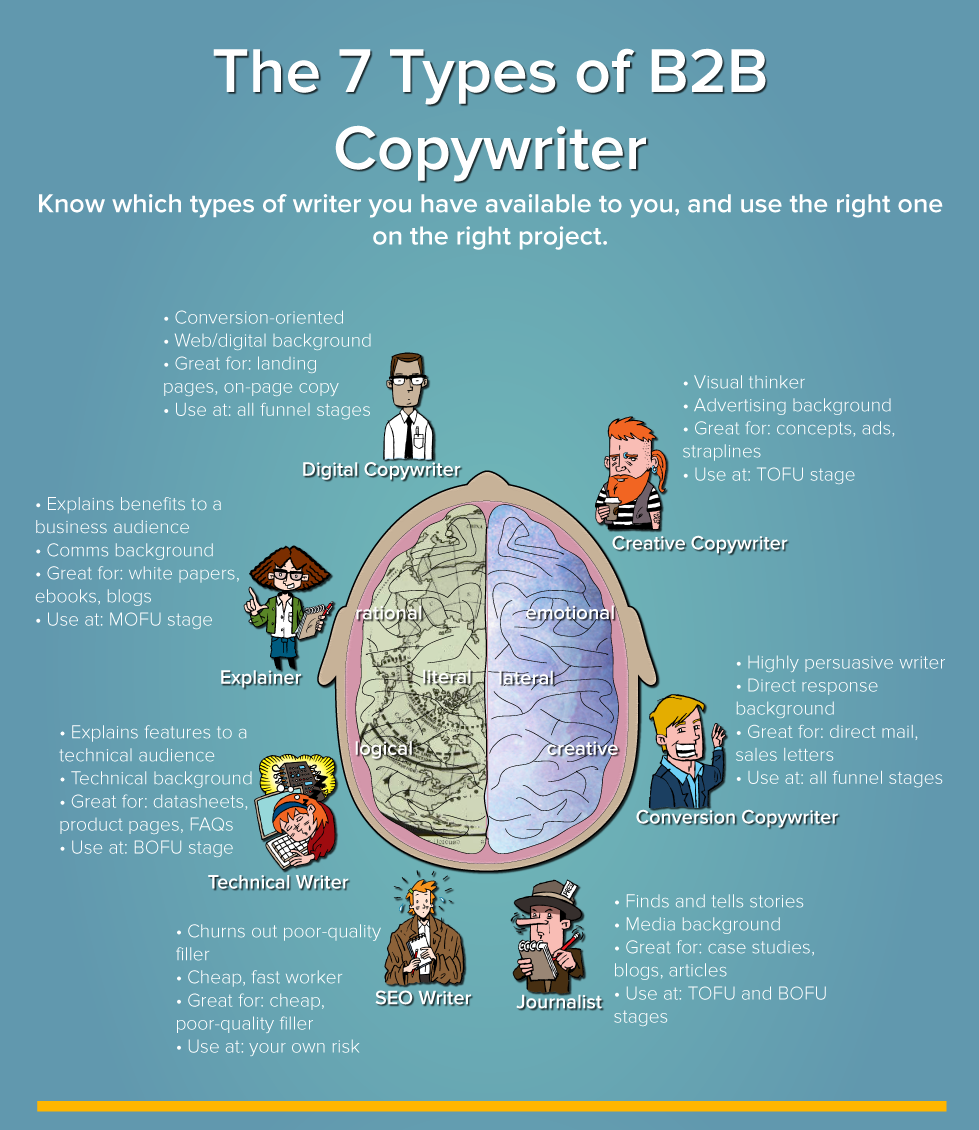Growing up, what did you want to be? An astronaut? Film star? Sandwich “technician”?
Chances are, it wasn’t “B2B marketing copywriter”. The same goes for everyone at Radix; none of us emerged from childhood desperate to enter the world of B2B tech copywriting. It’s unlikely many of us even knew such an opportunity existed at the time.
So, what are we doing here? Is there a well-worn route into a B2B tech copywriting agency?
The answer is… no. We’re just a group of (fairly) intelligent people with a shared passion for writing, who happened mostly to stumble across this wonderful niche by chance.
Some of us have been writing for fun since our teens. Some of us still aren’t sure how this happened. Some of us care more for the marketing side, while others simply want to soak up tech knowledge and flex their writing skills.
But here’s the thing: there’s no one right way to become a tech copywriter.
Who cares?
This post might read like a comfort piece for aspiring writers (you can do it, just look at me – my A levels *stunk*), but it’s actually response to one of our most frequently asked questions:
“What are your writers’ backgrounds?”
Honestly, people seem to care about this stuff, and that’s great. Keep asking.
When I joined Radix, I didn’t know the first bloody thing about B2B tech. My background? Retail, pulling pints, data entry, and importantly freelance (heavy emphasis on the word free) blogging. But I could write.
I was also perfectly happy to geek out, and my colleagues were happy to teach me the rest. So I read, I listened, and I wrote, while Radix invested time and training in bringing me up to speed. Before I knew it, I got it.
And I’m not the only one here who had an unusual introduction to the world of B2B tech writing.
Blogging for a hobby: Matt Godfrey, Head of Copy Team
I was about to begin yet another chapter of my trial by retail management, when Fiona rescued me and whisked me off to help her turn the one-man band Radix into a two-man band Radix.
I was writing a fictional blog at the time, which she’d been following – so even with no background in marketing or tech, she took a punt on my writing skills.
These days, I coach other copywriters how to do this very odd job, so I guess her gamble paid off.
Part vocation, part recreation: Kieran Haynes, Senior Copywriter
In the mid-2000s, I ran away from the city and studied for an MA in Professional Writing at Falmouth University. The course sounded vaguely vocational, but more importantly, it sounded concretely recreational – allowing me to spend a year beside the sea, reading books and writing stories.
For the most part, this assessment proved bang on. But somewhere between the beach trips and novella plotting, I did accumulate a small portfolio of speculative and paid copywriting work, and a little work experience – for local record labels, and for the Press Association.
A few years later, I found myself looking for a new job in the local area. (The Falmouth life is notoriously hard to give up.) Luckily, my need for work coincided with my friend Alex, a trainee careers advisor, needing someone to practice on.
She touted my skills as a copywriter over Network Cornwall – a network for local business women – and Fiona, MD of the then fledgling Radix, hired me based on my MA portfolio.
If I remember correctly, it was my speculative “Don’t Help The Aged” DM that swung it.
(And I then spent years actually learning how to do the job.)
Politics and ecommerce: Nick Prescott, Copywriter & Business Development Executive
Wherever I’ve worked, I’ve written. I began by working for a Member of Parliament and was thrown in the deep end writing blogs, emails, briefs and press releases. I then went to John Lewis and wrote emails for them, on almost any subject dealing with things like people requesting more information on something, to advanced insurance claims.
Following that, I worked for a lobbying company writing marketing material, research, and briefings for major planning applications and local plans. And then moved to an e-commerce optimisation company (which was when I began writing about tech).
And after that, Radix!
The next-door neighbour: Katy Eddy, Copywriter
I was working in Jubilee Warehouse as a content writer for Eleanor Bell Lighting Design as part of an Unlocking Potential program (which was the product of another, even more convoluted set of coincidences). During my lunch breaks, I got talking to Chloe, and sort of learned enough about Radix to know that it was way more legit than I could ever hope to become as a writer.
(As a pathetic side note, I had a quote from one of Matt’s blogs saved on my phone for about five months before I got a job here.)
I finished my placement with Eleanor, went back to Exeter and finished my degree. Didn’t really think about it much until the Radix job cropped up on Unlocking Potential’s site. I applied, fully expecting a “yeah, nah” and to go back to working retail and writing in my spare time, but somehow landed it. (Probably partially on the strength that I had to get to grips with a completely new, kinda technical subject quickly for Eleanor.)
And somehow, I’m still here.
Making boring things interesting: David McGuire, Creative Director
My first proper writing job was in local government; internal communications and PR – and as it turns out, it couldn’t have been better preparation for B2B copywriting.
Every day, public sector-minded, internally-focused experts would give me boring announcements, full of impenetrable jargon and long, formal sentences, and I had to make them clear and – if at all possible – exciting for the average person.
I didn’t consciously make a switch to B2B; I just saw an advert for a copywriter – and I wanted the job so badly, the newspaper started shaking in my hands. When I saw the job description, and the test brief (writing about air conditioning maintenance products) I figured “if I can make housing policy interesting, I can do this”. Turns out I was right.
That was in 2005 – and since then, I’ve worked for three agencies (including one of my own), writing about forklift trucks and fleet management, GPS testing and enterprise software. I know a little bit about a lot of very niche things, and it makes for some interesting conversations.
But basically, it’s still it’s the same game as before – making dull things compelling, and complicated things simple.
B2B tech copywriters aren’t born; they’re made. So we make them.
There you have it. There’s no one right way to enter this profession, and when you’re dealing with a topic as niche as ours, Radix can’t expect to hire fully-formed tech writers.
But what we can do is grow our own: hire writers with potential, and mould them into the B2B copy wizards we need to keep this business going. As a result, we’re a truly varied bunch, and to be honest, I’ve a feeling it’s that melting pot of backgrounds and experience that makes this whole crazy thing work.


